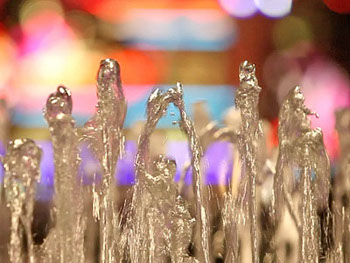 Back to selection
Back to selection
Five Questions with Last Call at the Oasis Director Jessica Yu

 For Oscar-winning filmmaker Jessica Yu’s latest film, Last Call at the Oasis, she looks at the frightening realities of the current global water crisis. Produced through the social issue giants Participant Media, Yu’s film has the makings of a must-see like An Inconvenient Truth and Food, Inc.
For Oscar-winning filmmaker Jessica Yu’s latest film, Last Call at the Oasis, she looks at the frightening realities of the current global water crisis. Produced through the social issue giants Participant Media, Yu’s film has the makings of a must-see like An Inconvenient Truth and Food, Inc.
Filmmaker: Tell us a little about what your film is about?
Yu: Last Call at the Oasis is about the water crisis, which is global and urgent, yet largely hidden here in the U.S. The film tells stories of people who are on the front lines in dealing with water shortage or contamination, from farmers to scientists to homemakers to the real Erin Brockovich, who is still battling industrial polluters over a decade after the eponymous movie came out.
Filmmaker: What motivated you to tell this story?
Yu: Diane Weyermann from Participant Media approached me about the subject, and I was immediately obsessed. It’s unfathomable that we could run out of water — something so basic to survival. It’s equally unfathomable that we hear so little about the problems we’re facing, whether it’s trace pharmaceuticals in our water supply or the fact that Lake Mead could run dry in 10 years. Water is complex and political, and I wanted the challenge of exploring the crisis through personal stories rather than data and information.
And on the film geek level, I was excited about the visual possibilities in making a film about water. Our cinematographer Jon Else, got so many gorgeous shots of fountains and streams we started calling it “water porn.”
Filmmaker: What was the most “eye-opening” fact you learned about the world’s water crisis while making this movie?
Yu: Since I live in California, I think it would have to be the precariousness of the state’s water situation. Growing up here, I’ve always been aware of drought, but I was shocked by the time frame in which we could see real disaster. It’s no longer an abstraction. One of our experts estimates that the Central Valley aquifer could be depleted in as little as 60 years. The valley supplies a quarter of the produce in the US. That had me googling “moving to Canada” more than a few times.
Filmmaker: Were there any films or directors that inspired you in the telling of this story?
Yu: Not directly, but it was nice to have an excuse to watch Chinatown and Erin Brockovich again… they served as great reminders that story and character are imperatives in any film about issues.
Filmmaker: What do you hope audiences will take away from your film?
Yu: I didn’t want the film to be finger-wagging or academic. I wanted it to be satisfying. What’s really going on here? What are we facing? I hope audiences come away feeling they’ve connected with the people in the film, and that they feel pulled, rather than pushed, into some kind of action. There’s so much we could be doing on both a large and small scale to lessen our water problems, and right now most of us just don’t think about it. There’s actually great hope in that — there’s great progress within our reach.
